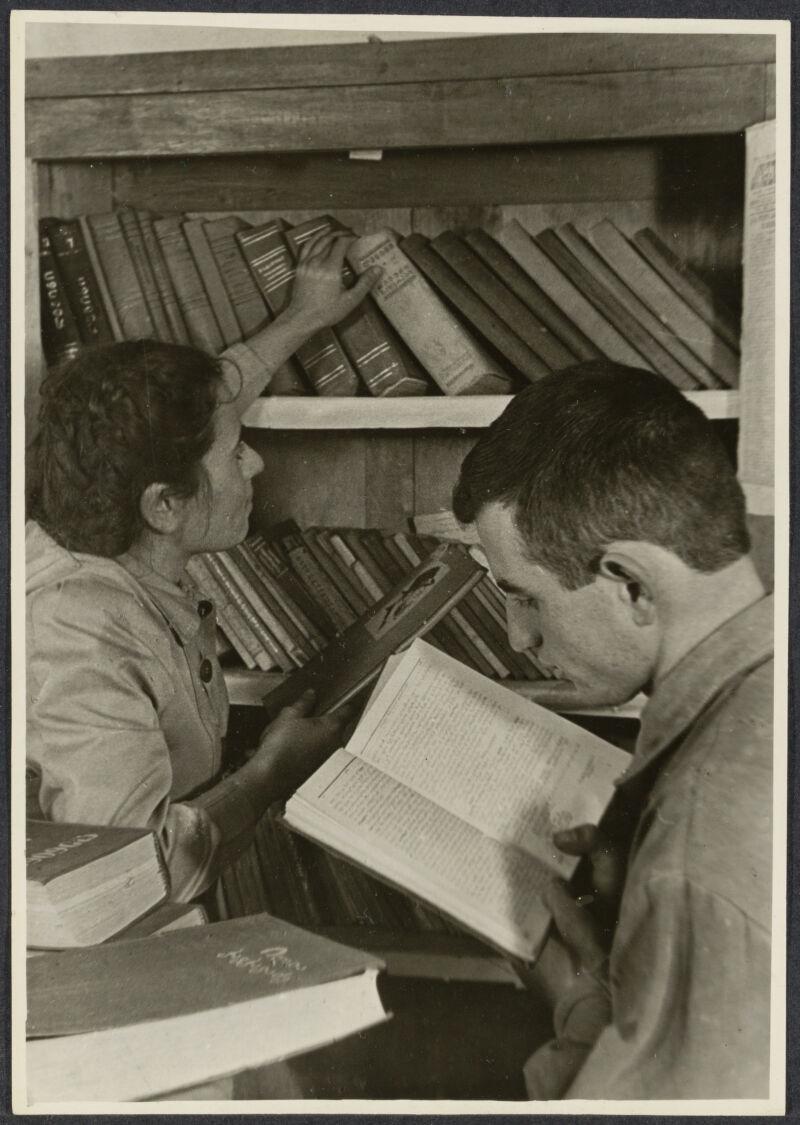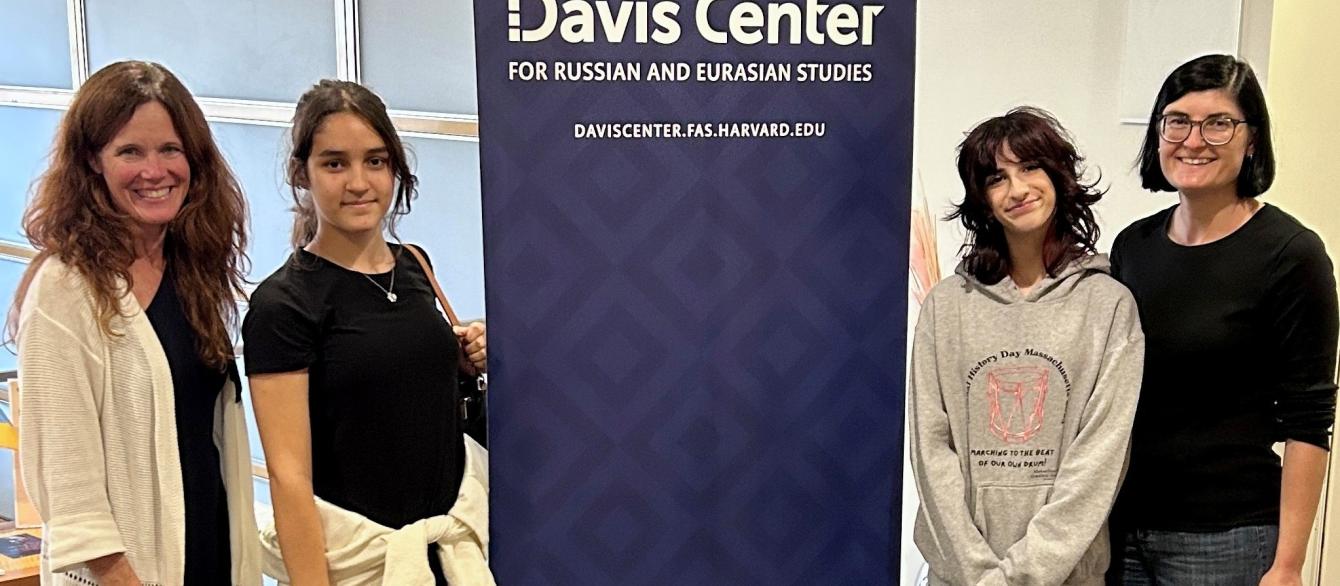What is National History Day?
National History Day (NHD) is a well-established program that equips students for college, careers, and active citizenship. NHD supports students in grades 6–12 as they engage in a year-long journey of historical research, interpretation, and creative expression. Emphasizing student-centered, project-based learning, NHD encourages students to explore a historical topic of their choice through primary and secondary source research. They then present their findings in various formats, including documentary films, websites, performances, papers, or exhibits. Students have the opportunity to showcase their projects in local, regional, state, and national competitions.
The Davis Center is partnering with Massachusetts Historical Society to assist teachers and students in Massachusetts with their National History Day projects. We invite any student who is considering undertaking a National History Day project on a topic relevant to Russian and Eurasian studies to contact us about potential resources and other support.
The Davis Center’s National History Day Prize – The Matryoshka Medal
Each year, we will award the Davis Center’s Matryoshka Medal to the best individual or group National History Day project that explores an aspect of Russian or Eurasian history and culture. Eurasia is defined as all republics of the former Soviet Union and broader Eastern Europe. The recipient(s) of this award will receive a book published by one of our scholars as well as an invitation to spend an afternoon at the Davis Center, where they will have the possibility of meeting our faculty, staff, and graduate students, visit a class, and attend a Davis Center event. To be considered for this award, please register for participation with the Massachusetts Historical Society.
Research help and appointments
If you need assistance with your research, please don’t hesitate to contact Davis Center Outreach Administrator Sandra Grudić at sgrudic@fas.harvard.edu or the Davis Center librarian Svetlana Rukhleman at srukhlem@fas.harvard.edu.
Research Theme
Every year, the National History Day sets a yearly theme. For 2026 the theme is Revolution, Reaction, Reform in History.
Resource Guide – Relevant Resources for Students and Teachers
Harvard University offers numerous open-source materials relevant to the research of Russian, Eurasian and Eastern European topics. If you encounter a resource that you cannot access or would like to check whether you can view or obtain a resource listed in one of our libraries that are not open source, please contact Sandra Grudić at sgrudic@fas.harvard.edu or Svetlana Rukhelman at srukhel@fas.harvard.edu.

P. Lutsenko. “The library of a collective farm in Potora, near Poti, Georgia. Shalva Silagayev, a field brigade leader, selects books for reading." Soviet Information Bureau Photograph Collection. Davis Center Collection at Fung Library, Harvard.
Our Libraries and Research Guides
HOLLIS (and other) Catalogs - Library Research Guide for History: This guide is intended as a point of departure for research in history.
Fung Library | Harvard Library – Davis Center Collections: The Davis Center collection contains books and periodicals related to the field of Russian and Eurasian studies, particularly in the areas of political science, economics, sociology and history. The general collection consists of approximately 20,000 volumes, primarily scholarly monographs, reference books, archival guides and statistical publications. It also includes current newspapers and periodicals.
Women's Movement in Russia -Primary source materials documenting women's activism and daily life.
- Collection: Rochelle Goldberg Ruthchild collection of print materials on the women's rights movement in Russia: This collection is in Russian language.
- Poliksena Shishkina-Iavein digital photograph collection: 140 digital images documenting the life and work of Poliksena Shishkina-Lavein (1875-1947), a major figure in the Russian women's rights movement who chaired the Russian League for Women's Equal Rights from 1910 to 1917.
Soviet History
Open Access Primary Sources · Digital Handbook for Research on Soviet History: The Digital Handbook for Research on Soviet History is a bibliographic guide to primary source materials for studying Soviet history, developed by the Davis Center for Russian and Eurasian Studies at Harvard University, with support from the Harvard History Department.
Soviet and Post-Soviet Lapel Pins - CURIOSity Digital Collections: Explore work, leisure and ideology in the Soviet Union in the 1960s-1980s through a collection of lapel pins.
Soviet/Post-Soviet Ephemera Collections: A collection of materials and artifacts related to various political events, movements, parties and personalities that were part of the political life in the former Soviet Union and Russia between 1987 and 1999.
Soviet Anti-Bureaucracy Posters: The collection contains 140 cartoons, posters, and satirical magazine covers, from the late Soviet period (1950-1991). The cartoons lampoon bureaucratic abuses and inefficiencies in offices, farms, construction sites, and other state-run enterprises.
Davis Center Library Soviet Poster Collection: about 200 posters dating from 1919 to the 1990s, including early Soviet pro-literacy posters, World War II propaganda, images satirizing NATO, Western capitalism, religion, and posters from late-Soviet anti-drug and anti-alcoholism campaigns.
Soviet Information Bureau Photograph Collection: nearly 6,000 black-and-white images documenting daily life and the reconstruction of the Soviet Union following World War II.
Harvard Project on the Soviet Social System: a keyword-searchable database of 705 digitized transcripts of interviews with refugees from the USSR during the early years of the Cold War.
Post Soviet
E-Books: Digital Resources for Slavic, East European and Eurasian Studies: This guide describes online resources for research in Post-Soviet and Eurasian studies available via Harvard digital platforms or produced and freely accessible outside the Harvard system.
Digital Resources for Slavic, East European and Eurasian Studies - Research Guides at Harvard Library: The Harvard Library’s collection includes a robust and constantly growing collection of digital resources for research in Post-Soviet and East European studies. These include databases, indexes, e-books and journals, digitized archives, video streaming services, digital images and other resources.
Ukraine
Russia's War on Ukraine: The Harvard Library's guide on the Ukraine War provides a curated collection of resources, including scholarly articles, news coverage, and primary sources related to the conflict. It aims to support research and understanding of the historical, political, and social dimensions of the war in Ukraine.
Russo-Ukrainian War | Ukrainian Research Institute at Harvard University: The Russo-Ukrainian War page on the Ukrainian Research Institute at Harvard University offers a comprehensive collection of resources related to the conflict, including research papers, articles, and multimedia content. It aims to facilitate understanding of the war's historical context, impacts, and ongoing developments.
Ukraïnica: The Primary Database of Ukrainian Studies is a platform that connects a growing database of Ukrainian literary works, historical documents, and films in high-quality English translation with a syllabus-building tool for creating and exporting editable reading lists with references for primary and secondary course materials.
Fontes: Open Access Sources for Ukrainian History - Fontes is a database of online, open-access resources for original research on the history of Ukraine.
The Great Famine Project: The MAPA Great Famine project focuses on the Ukrainian Famine of 1932-33, also known as the Holodomor (“death by starvation”), which is widely considered in Ukraine and beyond to be a genocide.
The Golden Age of Kyivan Rus: From the time of the Christianization of Kyivan Rus´ in 988 until the capture of Kyiv by the Mongols in 1240, a distinct literary and artistic culture emerged and flourished throughout the Kyivan Rus´ principalities.
Good luck on your research journey!




